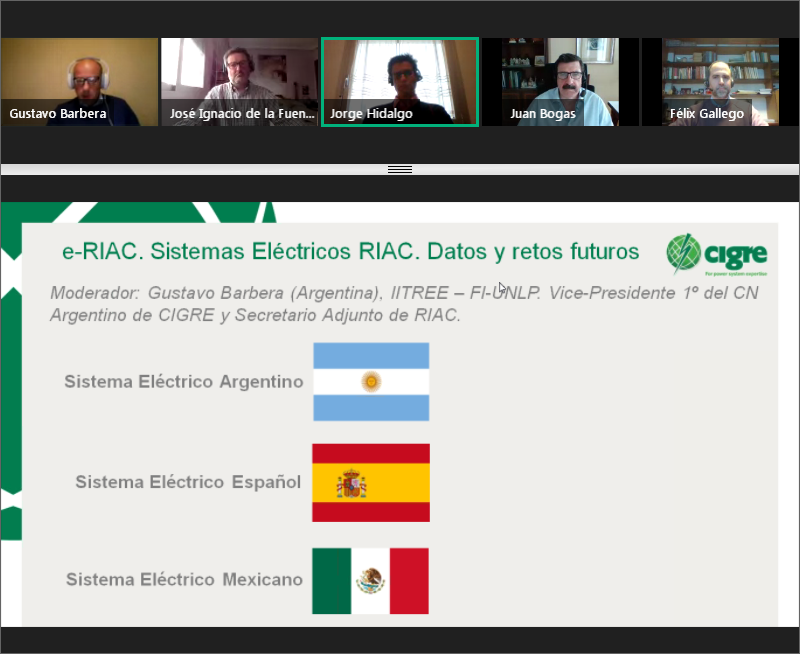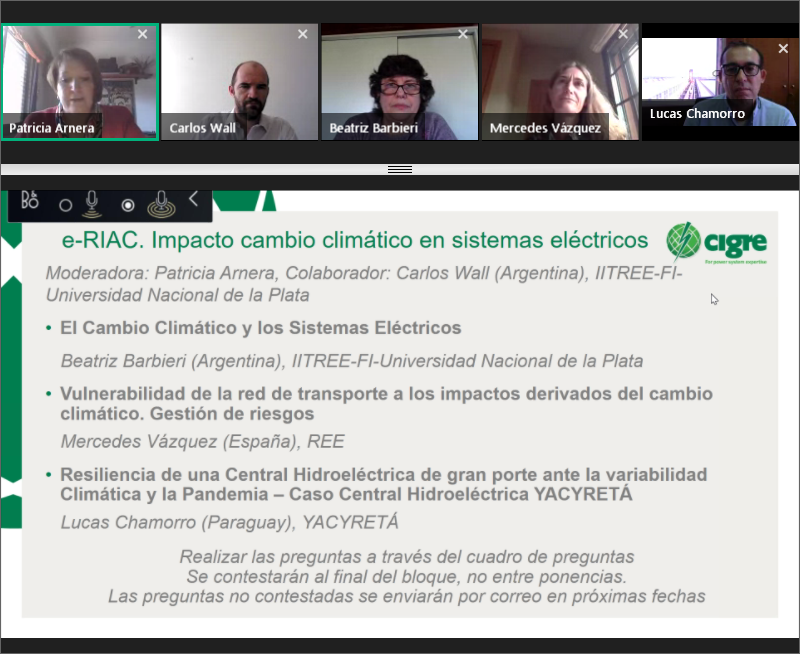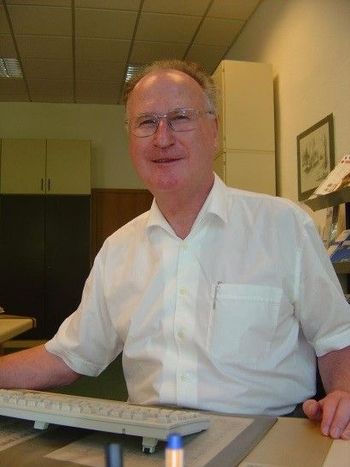CIGRE – RIAC Virtual Meeting of the Ibero-American Region of CIGRE (e-RIAC)
The CIGRE Ibero-American Region, known as RIAC, organized a three-day event from May 11-13, 2021 that gathered virtually more than 500 attendees from the different RIAC NCs: Argentina, Brazil, Chile, Colombia, Mexico, Paraguay, Peru, Portugal and Spain as well as other CIGRE experts coming from neighboring countries.

11-13 May 2021
Due to the Covid-19 pandemic the XIX ERIAC (Ibero-American Regional Meeting of CIGRE) was postponed from 2021 to 2023. In response and, to maintain technical activities and contact within RIAC, a virtual celebration was proposed with the theme “Challenges of operation in the Ibero-American Region of CIGRE: A post-pandemic look”.
During three days and for more than six hours per day, a total of 33 technical works were presented to the RIAC community. These technical works were grouped in nine different topics from Markets or Planning to Cybersecurity or Climate Change Impact on Power Systems, covering most technical aspects of regional and global interest. Additionally, the nine RIAC National Electrical Power Systems were shown to the audience, explaining current figures and futures challenges for each country. Some insights will be explained hereinafter.
In total, more than 40 panelists and 12 panel coordinators took part in an exceptional collaborative effort between all RIAC members.
“The e-RIAC has strengthened the links between RIAC NCs as well as established common technical grounds for future regional and global development.”
As such, e-RIAC will remain as a solid example of compliance with CIGRE Statutes that establish that National Committees may come together to form a Region, which is designed to enhance technical cooperation between countries and to promote and develop CIGRE.
Thanks to the use of webinar technologies it was possible to gather an important number of “cigreans” from all of the ibero-american communities in contrast to the number of attendees of presential events, in which typically attendance figures from the organizing NC prevail.
Technical topics covered during the e-RIAC
The event was divided into nine thematic blocks, in which international experts discussed the most relevant topics facing the energy sector such us new market challenges, new planning methodologies, power system flexibility, impact of DER and Electric Vehicles in the systems, decarbonisation and energy transition, cyber security, Intelligent asset management, preparedness of renewable generation forecasts for system operation, AI for network planning, protections and security of electrical systems, and the mpact of the climate change in our energy systems, among others.
As it is characteristic of RIAC events, the participation of international experts facilitated the exchange of experiences and perspectives, which clearly results in the strengthening of regional networks, the promotion of good practices and, additionally, it guarantees reflections from a diverse and global perspective.
The realities resulting from the pandemic have made e-RIAC 2021 more important. In this sense, and thanks to the articulated work of the 9 National Committees of the Ibero-American Region of CIGRE (Argentina, Brazil, Chile, Colombia, Spain, Mexico, Paraguay, Perú and Portugal), the e-RIAC continues to consolidate itself as a recognized scenario for knowledge management and dissemination of research, which in essence defines the CIGRE spirit on the exchange of experiences and knowledge among its members.
The e-RIAC 2021 addressed the different dimensions proposed by the energy transition, an imminent reality in our countries and which requires us to continue joining forces and sharing experiences to build the best possible future.
The conclusion e-RIAC 2021 showed is the continued need to building together a sustainable transformation in the Ibero-American region, seeking that users in different countries have the ability to participate more effectively, guaranteeing reliable, flexible, efficient and economic service. This is a challenge that consolidates us in the regions.


Technical conclusions of the e-RIAC
Undeniably, a relevant conclusion is strengthening the regional technical ties between National Committees and a joint effort to respond comprehensively to the challenges posed by the energy transition.
We saw a socio-economic development increasingly guided by comprehensive policies that promote the transformative decarbonization of societies, in the interests of efficiency and sustainability and to comply with different environmental commitments. For which, from different points of view, we can see how the countries have been developing:
- High potential for the integration of renewable energy, storage and electric vehicles;
- Development of energy efficiency programs;
- Green hydrogen as an alternative to decarbonise the most “difficult” sectors;
- Development of “super networks”: regional interconnections to take advantage of complementary resources;
- Digital technology as the central axis for the new technology development to modernize the infrastructure and create digital platforms that support new trends and markets;
- Cultural transformation: a new way of thinking about energy, improving resilience, reliability and efficiency, creating new opportunities and allowing user participation;
- Innovation: new business models based on current capabilities, among others.
All of the above will lead to new electrical system attributes, such as flexibility and resilience, which allow us not only to adapt to reliable and safe integration, but also to anticipate, prepare and quickly adapt to changing conditions, and withstand, respond and recover from low probability and high impact events. Resilience from a cybersecurity point of view will be equally important as our critical infrastructure grows more and more, and requires reducing vulnerabilities and mitigating risks.
Great challenge: Harmonious interoperability of all new players, elements, and technologies with the existing market and operation platforms guaranteeing the sustainable energy supply in a flexible and resilient way. This highlights the importance of developing processes that allow the incorporation of resources into the energy basket including green hydrogen, and the need to evolve towards a unified digital environment by applying new advanced analytics technologies, Blockchain, smart measurement, artificial intelligence and IOT.
We will continue to work on topics such as: supporting the safe incorporation of non-conventional renewable energy sources and new technologies; maintaining operational excellence in processes and people; strengthening cybersecurity; promotinge digital transformation; increasing resilience, flexibility and reliability; developing new markets and non-interconnected zones.
The RIAC countries will continue working together, construct ideas and contribute to change realities from our roles.
Banner and thumbnail credit: Photo by Headway on Unsplash


